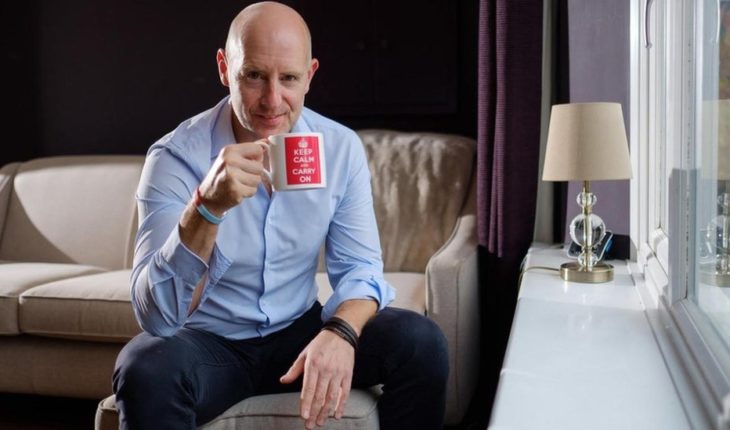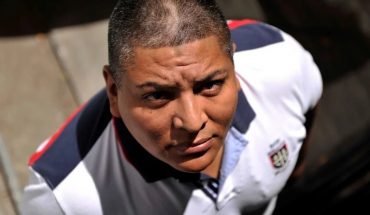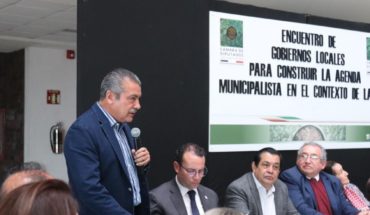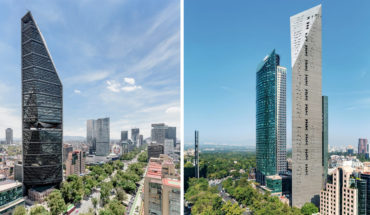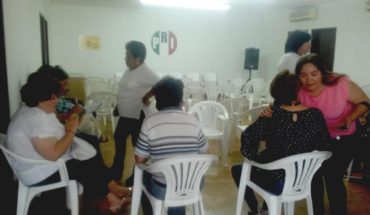Anna RajdlMuchos young are following the movement of FIRE. Barney Whiter parents bought their home when he started high school in the United Kingdom in 1981.
“They did the classic of the British,” says, “great House, great mortgage”.
Soon after, became a major recession and interest rates soared to 17%, so his parents had to cut back their spending to make a few mortgage payments that were paralyzing: holidays were cancelled.
The father of Whiter stopped buying beer and developed their own. And the attitude of man towards the money changed forever: “He was afraid and owe money to the Bank,” says.
He spent his adult life making sure that does not end up in the situation that his parents had.
Barney Whiter graduated in economics and was trained as a certified public accountant, a profession which continued to be an expert in the language of money, and worked in finance for 20 years.
But while his salary grew from 12,500 pounds (US$ 16,000) initial obtained after graduating, his lifestyle did not do so.
For more than two decades, Whiter made sure to save at least half of his salary each month for retirement, and any bonus he earned was going immediately to your savings.
He would bike to the office instead of taking the subway, in addition to reduced their consumption of alcohol.
Chris MannBarry Whiter adapted their lifestyle to one that allowed him to save half of his monthly salary for retirement. Whiter, now aged 48, was able to save enough as parajubilarse to 43.
It was not until a year until retiring that he met Mr. Money Mustache, a blog written by the Canadian Peter Adeney, a celebrity among the retired young.
Whiter realized that without knowing it had been part of a movement that has grown in popularity among younger workers around the world.
He is called FIRE: financial independence, remove early, or in Spanish “financial independence, early retirement”.
Starting a FIRE the basic model is something as well: the participants living as starkly as possible, saving half of their income or more during its between 20 and 40 years.
The goal is to retire before the age of 50.
Many devotees of FIRE do not plan to spend your 50’s playing cards or travelling by cruise ship.
It is financial independence: the objective is to have a Fund of savings sufficient and living in the simplest way.
Anna RajdlDesde your House in USA, Gwen Merz made a podcast of FIRE movement over how to live austerely. Thus they can spend to do more than search revenue and promotions in a corporate job, or worry about the Bank owe you a great mortgage.
And though these ideas have existed from ago, online communities have allowed FIRE movement really to consolidate itself in the last decade.
Currently, thousands of people around the world subscribe to podcasts (one of the most popular is called Firedrill), blogs and participate in discussion forums on how to live an austere life.
Unlike others, these communities of young people obsessed with their retirement savings contradict a tendency: the majority of millennials are not saving enough for retirement.
Millennials in United Kingdom save average for their retreat a 4.6% of their salary. The followers of the movement FIRE spend half of their income or more, while they spend as little as possible.
Craig Curelop, a financial analyst for 25 years, follows the philosophy of “possess everything, not to use any”.
He owns a car, but never managed it, but rents it on a site called Turo and instead uses a bicycle: “I did that and I won a couple of hundreds of dollars more a month,” says.
This inhabitant of Denver, United States, used to rent their bedroom on Airbnb and slept in the living room.
Posted by Craig Curelop on Thursday, June 28, 2018 was saving so much that he was able to buy another house in June of this year (his first duplex bought it in April 2017) where he lives in a room and rent the others.
“At this time I’m saving between $3,000 and $4,000 a month”, he said.
“It is likely that you have saved between US$ 60,000 to US$ 70,000 in the 18 months since I started my first rental in the House,” he says.
This way of life is not without criticism, because some point out that there are high savings targets that are not achievable.
“They have many positives and some good roots in financial planning, but I think it’s an extreme version that is not necessarily suitable for all,” says Damien Fahy, a London-based financial planning advisor.
Mathematics of living another controversial aspect of the moving FIRE is as follows: how much money need to retire to the 30 or 40?
Critics say that supporters of FIRE vastly underestimate how much you need to save.
Many (though not all) in the movement follow the rule of 4%.
If a person withdraws only 4% of an investment, your income will primarily consist of interest and dividends, and will not be any capital spending.
The rule of thumb here is to save 25 times the necessary expenditure: for example, that someone spent US$ 39,000 a year, would need US$ 771.000.
But this rule has its flaws, especially when applied to young people. Usually used for those who retire to their sixties, who probably will not need money for more than 30 years.
Math fail, says Holly Mackay, founder of the web site Boring Money: “If you retire to the 1930s, could live 70 years longer. I think that there is a bit of naivety.”
Cut to fit, no cutting Gwen Merz has 28 years and has $200,000 in assets (mainly in property, stocks and some cash).
The United States quit her job on March 27 and now presents the Firedrill podcast: ‘I’m not retired. I still have to work, but I have the freedom to choose something that I really enjoy and that perhaps don’t pay much.”
She hopes that their investments provide vital income whenever you decide to stop working. And for it, FIRE is not just financial, but offers Community and camaraderie.
“There are more people with which output and you do not look bad by having a car for 13 years”, explains.
She says that she would love to have a Nintendo Switch, but you feel it unnecessary. Also eat less than before and does not travel so often.
You should be able to live your best life, but that does not mean that you’re spending lots of money, writes Gwen Merz advises cutting unnecessary costs to the point of feeling uncomfortable, then then placed in the next higher level: “you should be able to live your best life, but that does not mean that you spend a lot of money.”
Whiter is agreed. “It is not necessary to go to an expensive bar in the center of the city,” he says.
“It makes no sense living miserably for 20 years just to live miserably for another 20 years after work”, says.
Working in freedom while the part “RE” of the movement FIRE is to retire early, the objective of Merz and Whiter is not to abandon their jobs and do nothing until they die.
“We are not destined to sit and drink Mai Tais all day,” says Merz.
“Humans have an intrinsic need to work. We need to feel like valuable members of society, and that is not going to stop because you have an amount of money in the Bank”, it adds.
Rather, it gives them the flexibility to do what they want.
“You have to live it to understand how powerful that is,” says Whiter.
You can read this article on BBC Capital.
Now you can receive notifications of BBC News World. Download the new version of our app and activate them so you don’t miss our best content.

